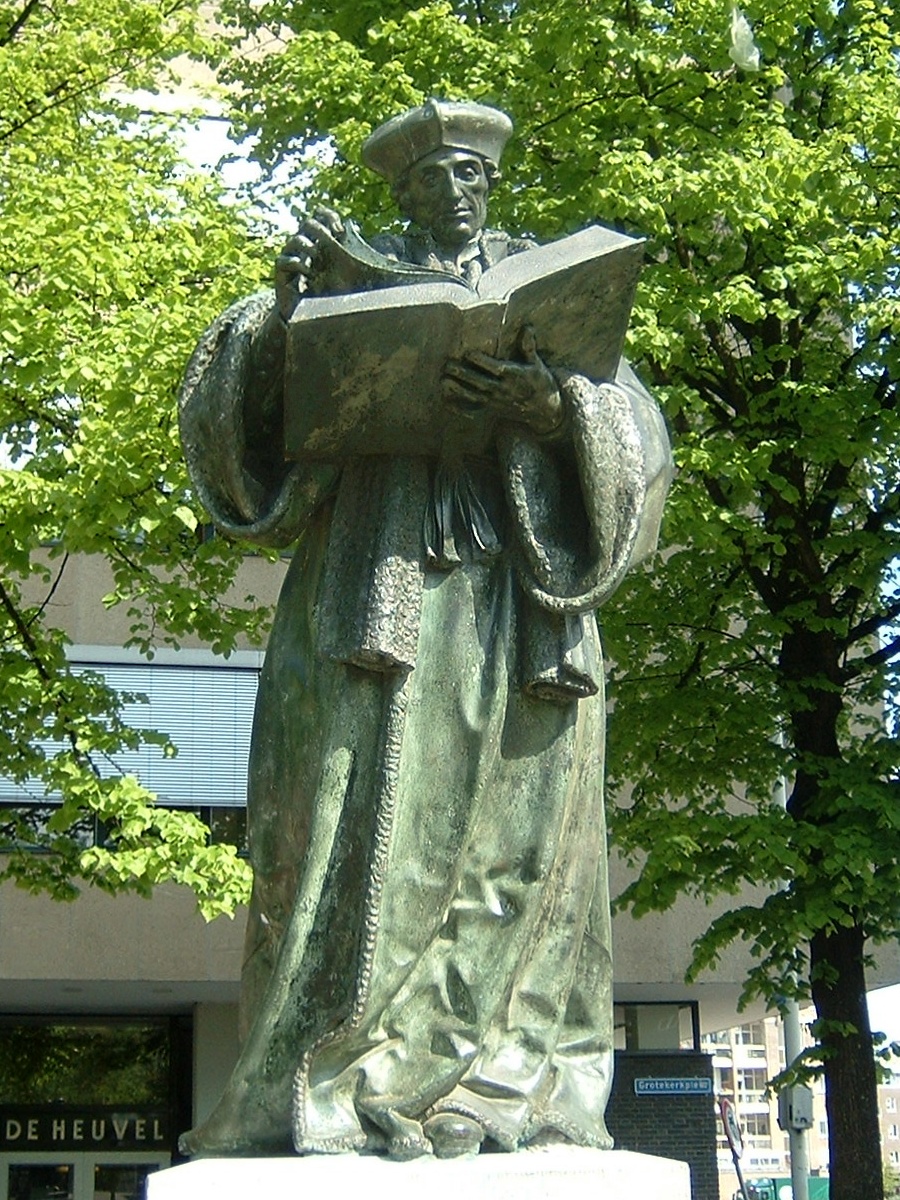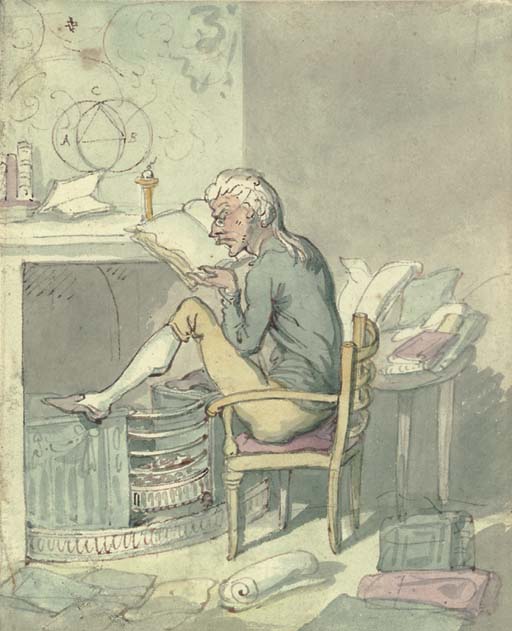|
In Praise Of Folly
''In Praise of Folly'', also translated as ''The Praise of Folly'' ( or ), is an essay written in Latin in 1509 by Desiderius Erasmus of Rotterdam and first printed in June 1511. Inspired by previous works of the Italian Renaissance humanism, humanist ''De Triumpho Stultitiae'', it is a spiralling satire, satirical attack on all aspects of human life, not ignoring superstitions and religious corruption, but with a pivot into an orthodox religious purpose. Erasmus revised and extended his work, which was originally written in the span of a week while sojourning with Sir Thomas More at More's house in Bucklersbury in the City of London. The title ''Moriae Encomium'' had a punning second meaning as ''In Praise of More'' (in Greek ''moría'' translates into "''folly''"). ''In Praise of Folly'' is considered one of the most notable works of the Renaissance and played an important role in the beginnings of the Protestant Reformation. "Although Erasmus himself would have denied it veh ... [...More Info...] [...Related Items...] OR: [Wikipedia] [Google] [Baidu] |
Desiderius Erasmus
Desiderius Erasmus Roterodamus ( ; ; 28 October c. 1466 – 12 July 1536), commonly known in English as Erasmus of Rotterdam or simply Erasmus, was a Dutch Christian humanist, Catholic priest and Catholic theology, theologian, educationalist, Menippean satire, satirist, and philosopher. Through his Works of Erasmus, works, he is considered one of the most influential thinkers of the Northern Renaissance and one of the major figures of Dutch and Western culture. Erasmus was an important figure in classical scholarship who wrote in a spontaneous, copious and natural Latin style. As a Catholic priest developing Philology, humanist techniques for working on texts, he prepared pioneering new Vulgate, Latin and Biblical Greek, Greek scholarly editions of the Novum Instrumentum omne, New Testament and of the Church Fathers, with annotations and commentary that were immediately and vitally influential in both the Protestant Reformation and the Catholic Reformation. He also wrote ''De ... [...More Info...] [...Related Items...] OR: [Wikipedia] [Google] [Baidu] |
Thomas More
Sir Thomas More (7 February 1478 – 6 July 1535), venerated in the Catholic Church as Saint Thomas More, was an English lawyer, judge, social philosopher, author, statesman, theologian, and noted Renaissance humanist. He also served Henry VIII as Lord Chancellor from October 1529 to May 1532. He wrote ''Utopia (book), Utopia'', published in 1516, which describes the political system of an utopia, imaginary island state. More opposed the Protestant Reformation, directing polemics against the theology of Martin Luther, Huldrych Zwingli and William Tyndale. More also opposed Henry VIII's separation from the Catholic Church, refusing to acknowledge Henry as supreme head of the Church of England and the annulment of his marriage to Catherine of Aragon. After refusing to take the Oath of Supremacy, he was convicted of treason on what he stated was false evidence, and was executed. At his execution, he was reported to have said: "I die the King's good servant, and God's first." Pope ... [...More Info...] [...Related Items...] OR: [Wikipedia] [Google] [Baidu] |
Penguin Books
Penguin Books Limited is a Germany, German-owned English publishing, publishing house. It was co-founded in 1935 by Allen Lane with his brothers Richard and John, as a line of the publishers the Bodley Head, only becoming a separate company the following year."About Penguin – company history" , Penguin Books. Penguin revolutionised publishing in the 1930s through its inexpensive paperbacks, sold through Woolworths (United Kingdom), Woolworths and other stores for Sixpence (British coin), sixpence, bringing high-quality fiction and non-fiction to the mass market. Its success showed that large audiences existed for several books. It also affected modern British popular culture significantly through its books concerning politics, the arts, and science. Penguin Books is now an imprint (trad ... [...More Info...] [...Related Items...] OR: [Wikipedia] [Google] [Baidu] |
Roman Curia
The Roman Curia () comprises the administrative institutions of the Holy See and the central body through which the affairs of the Catholic Church are conducted. The Roman Curia is the institution of which the Roman Pontiff ordinarily makes use in the exercise of his supreme pastoral office and universal mission in the world: thus curialism refers traditionally to an emphasis on the supreme authority of the Holy See within the Catholic Church. It is at the service of the Pope and Bishops in the Catholic Church, bishops, fulfilling their function with an Gospel, evangelical spirit, working for the good and at the service of Communion of saints, communion, unity and edification of the Universal Church and attending to the demands of the world in which the Church is called to fulfill its duty and mission (''Praedicate evangelium'', article 1). The structure and organization of responsibilities within the Curia are at present regulated by the apostolic constitution issued by Pope F ... [...More Info...] [...Related Items...] OR: [Wikipedia] [Google] [Baidu] |
Pedant
Pedantry ( ) is an excessive concern with formalism, minor details, and rules that are not important. Etymology Pedantry is the adjective form of the 1580s English word pedant, which meant a male schoolteacher at the time. The word pedant originated from the French word for "schoolmaster," pédant, in the 1560s, or from the Italian word for "teacher, schoolmaster," pedante. Both of these words are likely an alteration of Late Latin word "paedagogantes". The pejorative meaning of a "person who trumpets minor points of learning... or lays undue stress on exact knowledge of details" comes from the 1590s. In ancient Greece, a paedagogus was a slave entrusted with teaching young Roman boys. Analysis Notably, the distinction between pedantry and perfectionism is that pedantry typically focuses on highlighting trivial, unimportant details of others and is associated with the desire for attention or superiority, whereas perfectionism typically focuses on oneself and the desire of suc ... [...More Info...] [...Related Items...] OR: [Wikipedia] [Google] [Baidu] |
Roman Catholic Church
The Catholic Church (), also known as the Roman Catholic Church, is the List of Christian denominations by number of members, largest Christian church, with 1.27 to 1.41 billion baptized Catholics Catholic Church by country, worldwide as of 2025. It is among the world's oldest and largest international institutions and has played a prominent role in the history and development of Western civilization.Gerald O'Collins, O'Collins, p. v (preface). The church consists of 24 Catholic particular churches and liturgical rites#Churches, ''sui iuris'' (autonomous) churches, including the Latin Church and 23 Eastern Catholic Churches, which comprise almost 3,500 dioceses and Eparchy, eparchies List of Catholic dioceses (structured view), around the world, each overseen by one or more Bishops in the Catholic Church, bishops. The pope, who is the bishop of Rome, is the Papal supremacy, chief pastor of the church. The core beliefs of Catholicism are found in the Nicene Creed. The ... [...More Info...] [...Related Items...] OR: [Wikipedia] [Google] [Baidu] |
Lucian
Lucian of Samosata (Λουκιανὸς ὁ Σαμοσατεύς, 125 – after 180) was a Hellenized Syrian satirist, rhetorician and pamphleteer who is best known for his characteristic tongue-in-cheek style, with which he frequently ridiculed superstition, religious practices, and belief in the paranormal. Although his native language was probably Syriac, all of his extant works are written entirely in ancient Greek (mostly in the Attic Greek dialect popular during the Second Sophistic period). Everything that is known about Lucian's life comes from his own writings, which are often difficult to interpret because of his extensive use of sarcasm. According to his oration ''The Dream'', he was the son of a lower middle class family from the city of Samosata along the banks of the Euphrates in the remote Roman province of Syria. As a young man, he was apprenticed to his uncle to become a sculptor, but, after a failed attempt at sculpting, he ran away to pursue an educati ... [...More Info...] [...Related Items...] OR: [Wikipedia] [Google] [Baidu] |
Encomium
''Encomium'' (: ''encomia'') is a Latin word deriving from the Ancient Greek ''enkomion'' (), meaning "the praise of a person or thing." Another Latin equivalent is '' laudatio'', a speech in praise of someone or something. Originally was the song sung by the chorus at the κῶμος, or festal procession, held at the Panhellenic Games in honour of the victor, either on the day of his victory or on its anniversary. The word came afterwards to denote any song written in celebration of distinguished persons, and in later times any spoken or written panegyric whatever. ''Encomium'' also refers to several distinct aspects of rhetoric: * A general category of oratory * A method within rhetorical pedagogy * A figure of speech praising a person or thing, but occurring on a smaller scale than an entire speech * The eighth exercise in the progymnasmata series * A literary genre that included five elements: prologue, birth and upbringing, acts of the person's life, comparisons use ... [...More Info...] [...Related Items...] OR: [Wikipedia] [Google] [Baidu] |
Protestant Reformation
The Reformation, also known as the Protestant Reformation or the European Reformation, was a time of major theological movement in Western Christianity in 16th-century Europe that posed a religious and political challenge to the papacy and the authority of the Catholic Church. Towards the end of the Renaissance, the Reformation marked the beginning of Protestantism. It is considered one of the events that signified the end of the Middle Ages and the beginning of the early modern period in Europe. The Reformation is usually dated from Martin Luther's publication of the '' Ninety-five Theses'' in 1517, which gave birth to Lutheranism. Prior to Martin Luther and other Protestant Reformers, there were earlier reform movements within Western Christianity. The end of the Reformation era is disputed among modern scholars. In general, the Reformers argued that justification was based on faith in Jesus alone and not both faith and good works, as in the Catholic view. In the ... [...More Info...] [...Related Items...] OR: [Wikipedia] [Google] [Baidu] |
Prestel
Prestel was the Brand#Brand names and trademark, brand name of a videotex service launched in the UK in 1979 by BT Group#Post Office Telecommunications, Post Office Telecommunications, a division of the British Post Office Limited#History, Post Office. It had around 95,500 attached terminals at its peak, and was a forerunner of the internet-based online services developed in the late 20th and early 21st centuries. Prestel was discontinued in 1994 and its assets sold by BT Group, British Telecom to a company consortium. A subscriber to Prestel used an adapted TV set with a keypad or keyboard, a dedicated terminal, or a microcomputer to interact with a central database via an ordinary Telephone line, phoneline. Prestel offered hundreds of thousands of pages of general and specialised information, ranging from consumer advice to financial data, as well as services such as home banking, online shopping, travel booking, telesoftware, and messaging. In September 1982, to mark I ... [...More Info...] [...Related Items...] OR: [Wikipedia] [Google] [Baidu] |
Walbrook
Walbrook is a Ward of the City of London and a minor street in its vicinity. The ward is named after a River Walbrook, river of the same name. The ward of Walbrook contains two of the City's most notable landmarks: the Bank of England and the Mansion House, London, Mansion House. The street runs between Cannon Street and Bank junction, though vehicular traffic can only access it via Bucklersbury, a nearby side-road off Queen Victoria Street, London, Queen Victoria Street. City ward A street called Walbrook runs along the lower part of the brook's course. A valley is clearly visible; this can be seen most clearly at the junction of Walbrook and Cannon Street. On the street is the church of St Stephen Walbrook, which originally stood on the west bank of the stream, but was rebuilt around 1439 on the east side. In 1666 the church was destroyed in the Great Fire of London; Christopher Wren built a new church there in 1672, which still stands, to replace it. The Bank of England an ... [...More Info...] [...Related Items...] OR: [Wikipedia] [Google] [Baidu] |








